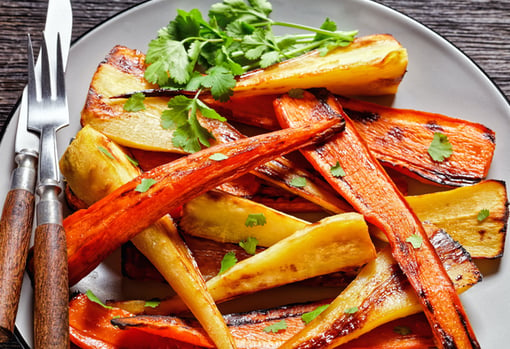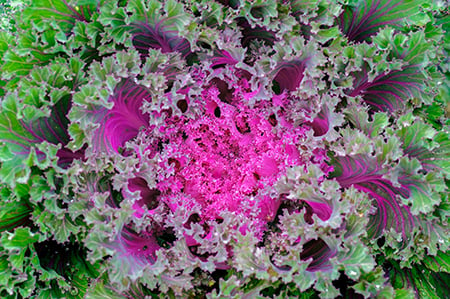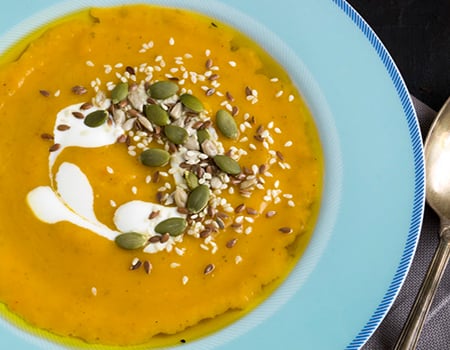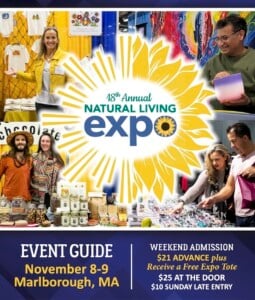Why Be Vegan In A World Where The Vast Majority Of People Are Not?
Known as the “Godfather of Vegan Bodybuilding,” natural bodybuilding champ Robert Cheeke offers advice from his forthcoming book "The Impactful Vegan."
Why be vegan in a world where the vast majority of people are not? That can be a hard question to answer, and a question that continually comes around on our vegan journey, which, like any journey, is not immune to doubt.
To differentiate “vegan” from “plant-based,” veganism takes a moral stance against animal exploitation, whereas plant-based refers to one’s diet or eating habit. Veganism, therefore, is not a diet (though it is often lumped into the “diet” category in grocery stores, in bookstores, online, and in conversation), but rather a philosophical way of living.
Whether you’re trying to continue and deepen your dedication to veganism or looking to embark on a vegan lifestyle and start your journey, finding your why can be crucial.
I never lose sight of my why, despite obstacles the real world presents every day — from food marketing, to clothing, to everyday items that contain animal by-products. It is through my why that I have found meaning in staying the course. And it’s your own personal why that I want to help you cultivate.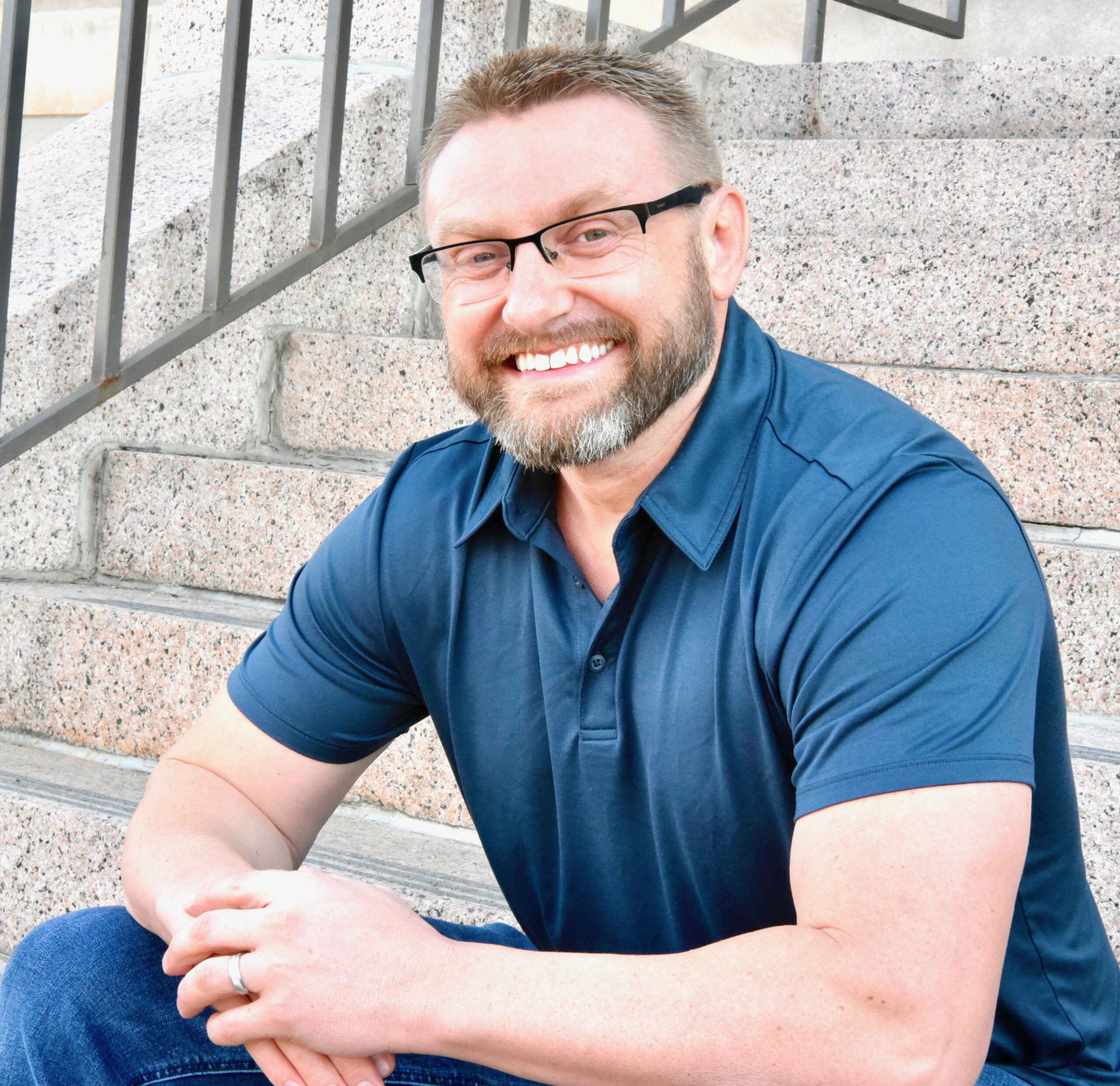
I grew up on a farm, surrounded by animals that are typically turned into food, and I got to know them as individuals. Those unique experiences inspired me to avoid hurting animals or contributing to their suffering. I saw animals as individuals, not things, and it changed my life forever. It’s been decades since I made my decision to dedicate my life to helping animals live better lives, and that is what drives my why to continue to help animals today.
Vegan Ways And Whys That Last
It’s easy to fall prey to temptations of highly processed, cheap, accessible animal foods. And it’s easy to struggle with circumstantial amnesia. In fact, much of our capitalist society has been built on those very two things.
Simply put, by knowing why you choose to live a vegan lifestyle, and never forgetting it, even during times of temptation, you may soon discover that not only are you not tempted by the animal foods that used to dominate the space on your plate, but that you’ll actually be repulsed and repelled by them once your nutritional and consumer program shifts to plants.
Once you have determined your why, your habits will reflect your priorities, and you will be on track to live in alignment with your authentic self.
But how do we do this?
Through small, consistent actions, we develop new habits, and those new habits become our new normal, our routines, and our second nature. Studies show that we’re more likely to be successful when we take small, incremental steps, adapt to our new routines, and practice them daily.
If you want your vegan lifestyle to stick, you need to practice it consistently. Ultimately, if willpower fades (and it will), or your priorities change, or your moral perspectives are shifted, it is your consistent practice of vegan living that will help sustain a long-lasting commitment to reducing animal suffering. In essence, we are the sum of the actions that we most often take. Athletes exercise. Entrepreneurs work. Musicians play. Vegans eat plants. Your habits define you, so choose them wisely.
It also helps to know how an animal goes from living on a farm to ending up on your plate. When you understand that the only way for an animal to be turned into food is through slaughter, and that most animals we eat are babies who are just weeks or months old, it helps us make more compassionate choices for our meals, develop new taste preferences for plant-based foods, and encourages us to avoid the enticement of returning to old eating patterns. By aligning your moral compass with compassion, equipping yourself with plant-based nutritional knowledge, and developing a sense of our relationship with our planet — which actions, foods, beverages, products, practices, and resources contribute most to the erosion of the place we all call home — you can find a true vegan North Star.
What Motivates Your Desire To Change Your Food Choices To Help Animals?
How does it make you feel to see a dog chained up in a yard for hours, days, weeks, or months on end? How do you react to someone kicking a cat or a dog? Do you feel the desire to join in and participate in the assault, or do you feel bad for the abuse that you are witnessing? What happens behind closed doors in large-scale factory farming is far worse than leaving a dog out in the cold, or kicking a cat, or the sheer neglect of an animal. It is unimaginably worse, and yet it goes on every second of every day, and many of us unknowingly support that cruelty by creating a demand for animal food products with our purchases of meat, milk, and eggs, and with our purchases of leather, wool, and fur, when there are countless cruelty-free alternatives.
Now, take a minute to recall an act of kindness toward an animal that you witnessed. Either a dog or cat being rescued from danger, a sea turtle getting a net removed from her body and returned to the ocean, a baby calf that was on his way to slaughter but was given a second chance to frolic in the pasture of an animal sanctuary, or an injured bird that has been rehabilitated and can fly again. How does it make you feel to see kindness being offered to the most innocent and vulnerable among us? If you felt moved in any way, particularly if you felt moments of happiness or peace, understand that by living a vegan lifestyle in a non-vegan world, you can experience those feelings all the time.
The most rewarding decision I’ve made in my life was becoming vegan on December 8, 1995. I celebrate my vegan anniversary every bit as much as I celebrate my birthday or other yearly milestones. We’re not alone on this vegan journey, even if at times it can feel isolating. Know that there are millions of other people, just like you, who care for animals just like you do, and that compassion can prevail if we come together, support one another, and collectively push the vegan movement forward.
Doing so is often as simple as selecting a different item on the shelf in the store, or picking an alternative menu item at the restaurant, looking for a cruelty-free or not tested on animals logo on a package, or searching for a vegan certification symbol on any product. We can close that gap between ourselves and the products we use by asking questions, learning from others, and questioning the status quo to create a greater demand for the types of products we will proudly support. Over time, you’ll automatically know which brands and which products are more aligned with your inner compassion as a result of taking those easy measures to investigate the level of cruelty associated with any purchase.
Learn To Honor Your Why
But how do we find the inspiration to live a vegan life in a non-vegan world without giving up hope? Part of it involves acknowledging the sad reality of factory farming and deciding to take a personal stand against it, while not letting it keep us depressed. It means finding joy because you are vegan, and in knowing that you are making a difference in the lives of others every single day. So, let the reality of animal suffering be your fuel to promote kindness and compassion, knowing that your actions as a vegan advocate directly contribute to a reduction in animal suffering. That is how to keep moving forward, despite all the sad realities present in contemporary society.
It’s also crucial to find community, realize that we have the power to change the world with our purchasing choices, and to make sure to take the time to celebrate all the victories we see in support of animals. When major car companies decide to move away from leather interiors, that is a win for animals. When clothing and fashion brands do away with fur, that is another win for animals. Regardless of their intentions, which are almost always driven by profits, when McDonald’s and Burger King offer vegan options worldwide, and prominently promote them to their customers, that, too, is a win for animals. We have to see it that way; otherwise, being vegan in a non-vegan world can feel lonely, depressing, and uninspiring. That’s no way to power a movement forward.
Nearly one hundred million people worldwide at present time have chosen to live a vegan lifestyle. It’s an influential community that is impacting the supply and demand of foods offered around the world. This trend isn’t going anywhere soon, and veganism is growing rapidly, for good reason. Living compassionately is rewarding. Living healthfully has numerous physical, emotional, and psychological benefits. Making a difference in the world is intrinsically fulfilling, and being part of a likeminded community enriches lives.
If one hundred million people can find their why and give up eating animals, you can as well.
Reprinted with permission from The Impactful Vegan, to be released June 25, 2024, on pre-order now.
Often referred to as the Godfather of Vegan Bodybuilding, Robert Cheeke is the author of the books Vegan Bodybuilding & Fitness, Shred It!, Plant-Based Muscle, the New York Times bestseller, The Plant-Based Athlete, and his latest, The Impactful Vegan. A former multi-sport athlete, he has followed a plant-based diet for more than 28 years. Visit VeganBodybuilding.com. Meet Robert in person at New England VegFest for his talk “How To Be An Impactful Vegan” on Sunday, June 9 at 2:30.








